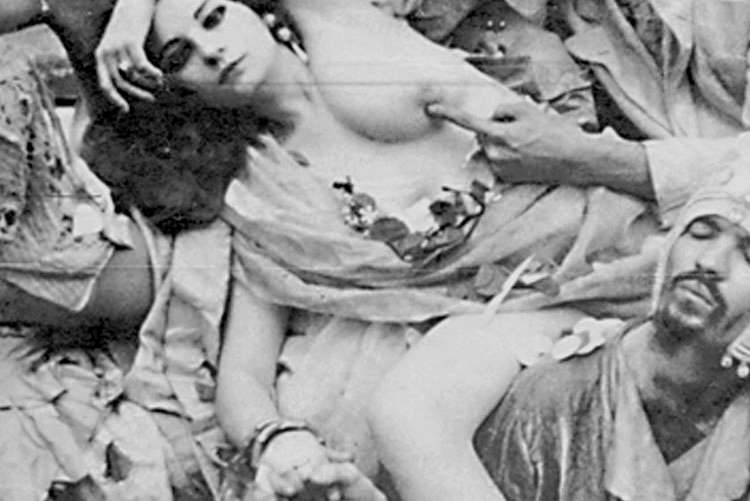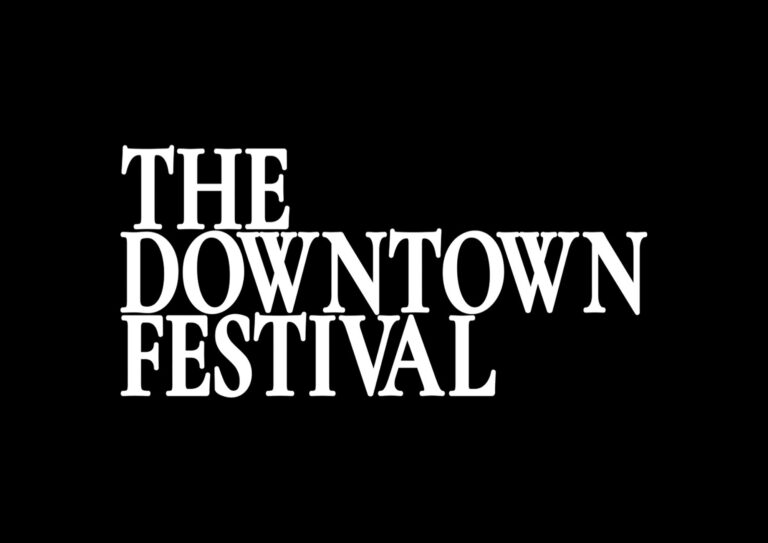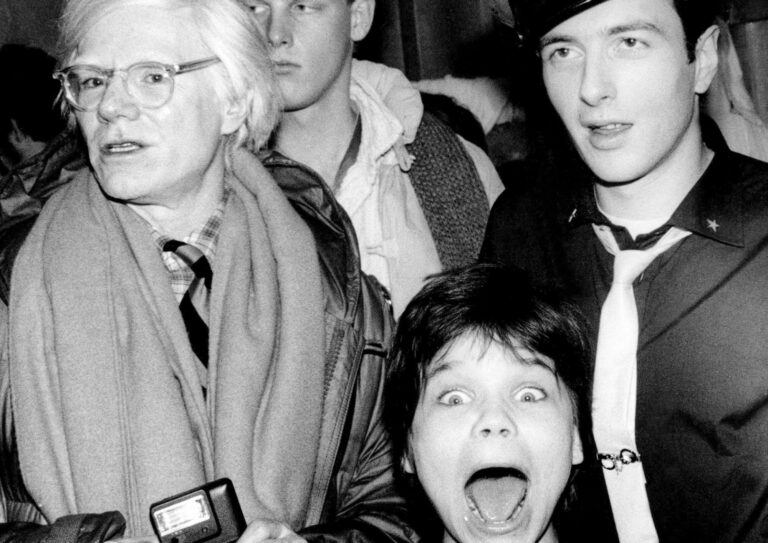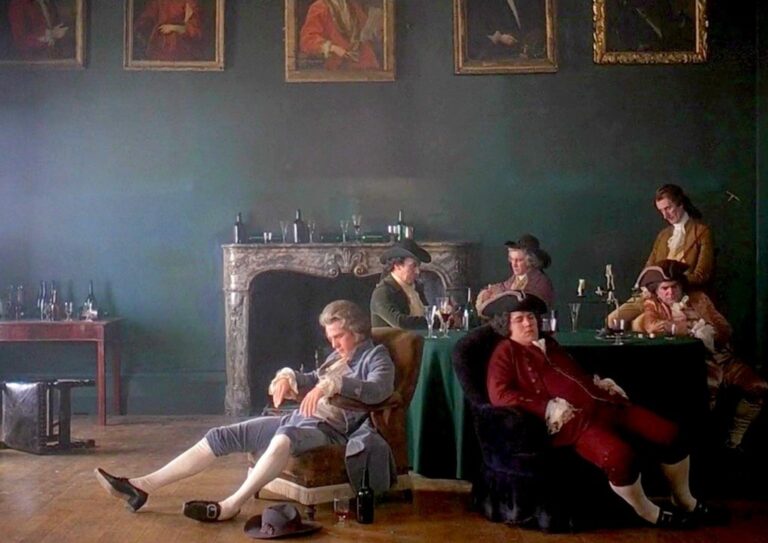Eternal Flames
Benjamin Crossley–Marra pays homage to Jack Smith’s Flaming Creatures and Ken Jacobs’ Two Wrenching Departures ahead of The Roxy Reelness Queer Cinema Series.
It’s June again, AKA Pride Month, and the Roxy Cinema is presenting cinematic selections from the queer canon ranging from the 60s through today. Roxy Reelness: A Celebration of Queer Cinema pulls in the gamut from Hollywood, (Cruising, The Rocky Horror Picture Show) arthouse tentpoles, (Happy Together, Blue is the Warmest Color) documentaries, (Paris is Burning, Portrait of Jason), requisite Fassbinder (Querelle, Whity) and many more.
For their part, the Roxy Cinema is presenting a sprinkling of cinematic selections from the queer canon ranging from the 60s through today. Roxy Reelness: A Celebration of Queer Cinema pulls in the gamut from Hollywood, (Cruising, The Rocky Horror Picture Show) arthouse tentpoles, (Happy Together, Blue is the Warmest Color) documentaries, (Paris is Burning, Portrait of Jason), requisite Fassbinder (Querelle, Whity)and many more.
Notably on deck are Jack Smith’s Flaming Creatures and Ken Jacobs’ Two Wrenching Departures. Both are presented as a tribute to Jack Smith with Jacobs and critic J. Hoberman in attendance on June 3rd. For the uninitiated, Flaming Creatures stirred up a bit of a hoo-hah when it premiered in 1963. Children born into (and unto) the golden age of self-made pornography won’t comprehend what made the closeups of sex organs in all manifestations, from all walks of life, so objectionable that police were called to screenings. The film was eventually seized, banned, and Jacobs plus filmmaker Joan Mekas would get arrested and charged with obscenity. Unfortunately, in their, uh, zeal to censor this, police also accidently seized Andy Warhol’s only print of Normal Love. It was never recovered.
Midnight screenings of Flaming Creatures continued for years with Smith and Jacobs eventually falling out over a print Jacobs obtained from Anthology Film Arvchives. Smith held a belief that his films were ever evolving and should always be in a state of growth, (a thinking that would later become attractive to Hollywood auteurs such as Michael Mann and Ridley Scott). Smith died in 1989 with the conflict ostensibly unresolved. This is touched upon in Jacobs’ touching Two Wrenching Departures, which chronicles his up and down relationships with both Smith and experimental filmmaker Bob Fleischner who died within a week of one another.
Flaming Creatures is a celebration of sex as art. Filled with images of death, life, and dreams all grotesque and charming, it feels off-putting, obtuse, and alien from today’s antiseptic sexcapades. So, it’s obviously the “must-see” of this program. A work of ecstasy and creativity.
Additionally, two personal favorites are Wong Kar Wai’s Happy Together and, sorry kids, Blue is the Warmest Color. Let’s get straight to the primary problem: the sex scenes. In both films they feel clinical, detached, and exploitative. So do many sex scenes from countless hetero-focused films. But the filmmakers in these cases ARE heterosexual and thus, it can feel, especially currently, like they’re encroaching on foreign territory in a vainglorious quest for artistic commendation.
But, and it’s a big but, both Happy Together and Blue is the Warmest Color dare to tackle the epic scope of same-sex relationships in a way I’ve never seen presented on screen before. Ups, downs, dips, flows, beginnings, ends, fights, sex, subtle gestures, and physical abuse make these relationships feel real, messy and true. It’s true that the relationships in neither film end well, but the main characters grow and mature. They are not the same people we meet at the beginning. They are real.
What a great segue into William Friedkin’s Cruising. Which manifestly does not present same-sex relationships in the same way but has an extraordinary arc, nonetheless. So…Cruising to me, is a New York City noir about the duality of nature seen through the prism of gay culture. Now, coopting any culture, subculture or movement to achieve an exoticized effect is dicey. Watching this film feels like being on the outside looking in. Even as a queer person. But, in my mind, there’s a celebratory sensation that shines through the decadent grit that’s captivating, compassionate and aware of its limitations.
There’s more too. A pair of Fassbinder films make for an excellent double-feature: Whity, an angsty, genre-bending early entry that’s rarely screened as well as the Gen-Z embraced Querelle, Fassbinder’s near-drunken reverie of Jean Genet’s seminal Querelle of Brest. Scrolling through twitter now you’d think this was the film he was best-known for, but this was not always the case, Time Out London in 1980 declared this was “perhaps an entirely appropriate parting shot from a drug-crazed German faggot.” We’ve moved up since then.
No queer film series would be complete without PARIS IS BURNING. Best-known for its influence on drag, ballroom and voguing culture. It’s the small, funny, awkward moments with Dorian Corey, Pepper LaBeija and random interviewees on the street that add a lighter, human, component to all the glamor and life and death. Also in the documentary vein, though not nearly as celebratory, is Shirly Clarke’s Portrait of Jason: a chilling document of self-destruction, identity politics and ethos surrounding documentary filmmaking.
In the camp category we’re blessed with John Water’s fun, also under-screened A DIRTY SHAME as well as the campy, fun and over-screened THE ROCKY HORROR PICURE SHOW. Camp has taken a hit recently as queer culture has moved away from counterculture and into the mainstream. This author himself is dubious that the joys and subversions camp, shlock and shock have a place in a culture so focused on assimilation. Which brings us to KNIFE + HEART, a recent, pre-pandemic addition to the queer canon which dares to combine camp, horror, mystery, and homoeroticism with the director clearly being well-versed in the films we’ve just discussed.
In closing, no matter how you identify, there’s a film in here that speaks to you. Whether it’s a classic arthouse tentpole or a journey into the unknown, there’s nothing in this program that will leave you feeling empty.
Words by Benjamin Crossley–Marra

Scene from Flaming Creatures



